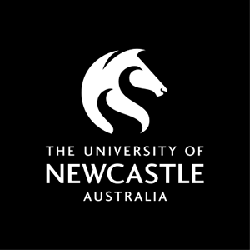About Bachelor Of Technology (renewable Energy Systems) in University of Newcastle
What you will study
Build critical and technical skills in:
- calculus of science and engineering
- electrical engineering design
- carbon accounting and energy auditing
Choose your major in either mechanical or electrical engineering.
Electrical major:
- quantum mechanicals and semiconductor physics
- electric machines and power systems
- principles and design of off-grid power systems
- power electronics and renewable energy systems
- automatic control
Mechanical major:
- mechatronic systems
- thermofluids
- mechanical engineering design
- materials science and engineering
- renewable energy conversion
Career opportunities
Engineers and technologists in the field of renewable energy work on a variety of technologies and their integration into systems. These include technologies such as solar, wind and geothermal energy, biofuels and hydropower. Engineers and technologists research and develop creative ways to transform renewable energy into usable power. They are vital in the design of these sustainable technologies as well a their implementation.
You could work for an energy company, a consultancy, a renewable energy equipment manufacturer, a research and development organisation or a government department.
Typical positions include:
- wind energy technician
- energy consultant or advisor
- solar energy systems designer
- thermal energy systems manager
- renewable energy project officer
Academic qualification equivalents
- Applicants must have passed All India Senior School Certificate (CBSE) with 13 points or from ISC with 83%
English language requirements (one of the below):
- IELTS : 6 With minimum of 6.0 in each band
- TOEFL : 60 Overall score between 60-78 with the following scores in each band-
- Reading= 13-18
- Listening= 12-19
- Speaking= 18-19
- Writing= 21-23
- PTE : 50 Overall score of 50-57
University of Newcastle Highlights
| University type |
Public |
| Rank |
207 in World |
| Intake type |
Semester based |
| Programs |
Over 180 |
| No. of Campuses |
5 |
| Applications accepted in |
January, February, May, June, July, August |
University of Newcastle The Average Tuition Fees And Other Expenses
- The tuition fee at the University of Newcastle differs depending upon the degree level and whether one is receiving commonwealth assistance, international education or studying part-time.
- Program cost for some popular undergraduate courses is given below-
| Program name |
Program cost |
| Bachelor in Business (Honors) |
30,090 AUD |
| Bachelor in Science (Honors) |
38,515 AUD |
| Bachelor in Law (Honors) |
30,290 AUD |
- Program cost for some popular graduate courses is stated below-
| Program name |
Program cost |
| Master of Business Administration (Global) |
29,770 AUD |
| Master of Business Administration (Global) / Master of Science (Data Analytics) |
32,635 AUD |
| Master of Law |
31,785 AUD |
Accommodation Cost
The institute provides its applicants with an option of choosing a mode of accommodation that suits their needs and requirements best. The cost of different types of accommodation available to aspirants seeking admission to UON is as follows:
| Type of Accommodation |
Cost in AUD (per week) |
| On-campus (catered) |
320 to 510 |
| On-campus (non-catered) |
175 to 385 |
| Hostels and Guesthouses |
90 to 150 |
| Homestay |
235 to 325 |
| Off-campus |
100 to 440 |
Other expenses
| Type of Expenses |
Cost in AUD (per week) |
| Groceries and Food |
80 to 280 |
| Public Transport |
15 to 55 |
| Entertainment |
80 to 150 |
| Gas and Electricity |
35 to 140 |
| Others |
200 to 400 |
Estimated overall expenditure of a year (excluding tuition fee): 20,290 AUD.
English Proficiency Test Scores For International Students
English Language Proficiency Test scores are a measure of the English Language fluency of the applicants. The University of Newcastle expects all students to fulfill these test score requirements, including students whose first language is English or have studied in an educational institution whose language of instruction is English for at least 4 years. These tests are conducted to provide a structural base so that there is no hindrance to cope with the syllabi.
| Test |
Minimum Scores |
| IELTS |
6.0 to 6.5 - Academic |
| TOEFL |
64 to 93 – IBT 500 - PB |
| CAE (Cambridge English: Advanced) |
52 |
| CPE (Cambridge English: Proficiency) |
N/A |
| IB (International Baccalaureate) -Standard Level |
4 |
| IB (International Baccalaureate) -Higher Level |
3 |
Note: These scores are course dependent and may vary from course to course and hence, students are advised to be well aware of the minimum score requirements.
